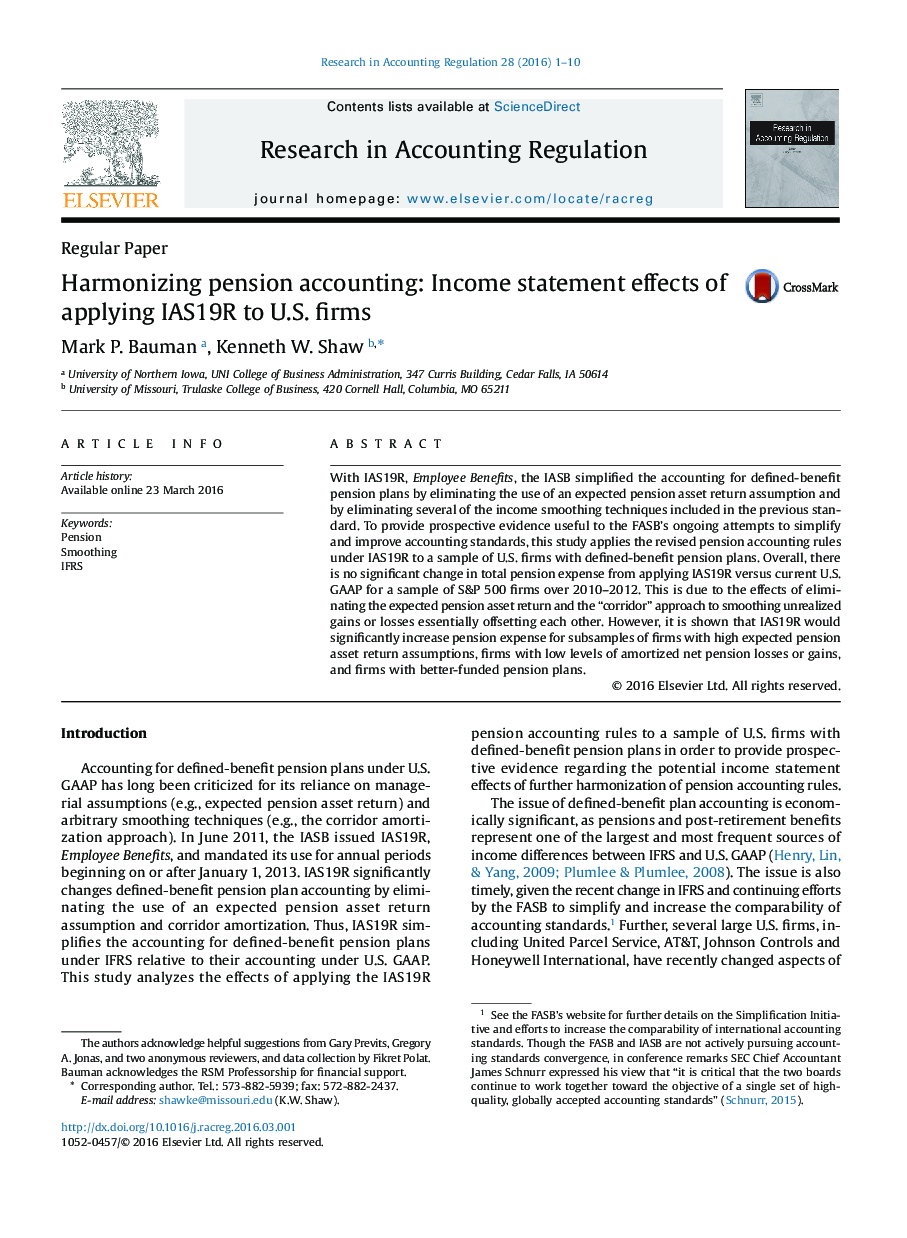| Article ID | Journal | Published Year | Pages | File Type |
|---|---|---|---|---|
| 1006556 | Research in Accounting Regulation | 2016 | 10 Pages |
With IAS19R, Employee Benefits, the IASB simplified the accounting for defined-benefit pension plans by eliminating the use of an expected pension asset return assumption and by eliminating several of the income smoothing techniques included in the previous standard. To provide prospective evidence useful to the FASB's ongoing attempts to simplify and improve accounting standards, this study applies the revised pension accounting rules under IAS19R to a sample of U.S. firms with defined-benefit pension plans. Overall, there is no significant change in total pension expense from applying IAS19R versus current U.S. GAAP for a sample of S&P 500 firms over 2010–2012. This is due to the effects of eliminating the expected pension asset return and the “corridor” approach to smoothing unrealized gains or losses essentially offsetting each other. However, it is shown that IAS19R would significantly increase pension expense for subsamples of firms with high expected pension asset return assumptions, firms with low levels of amortized net pension losses or gains, and firms with better-funded pension plans.
